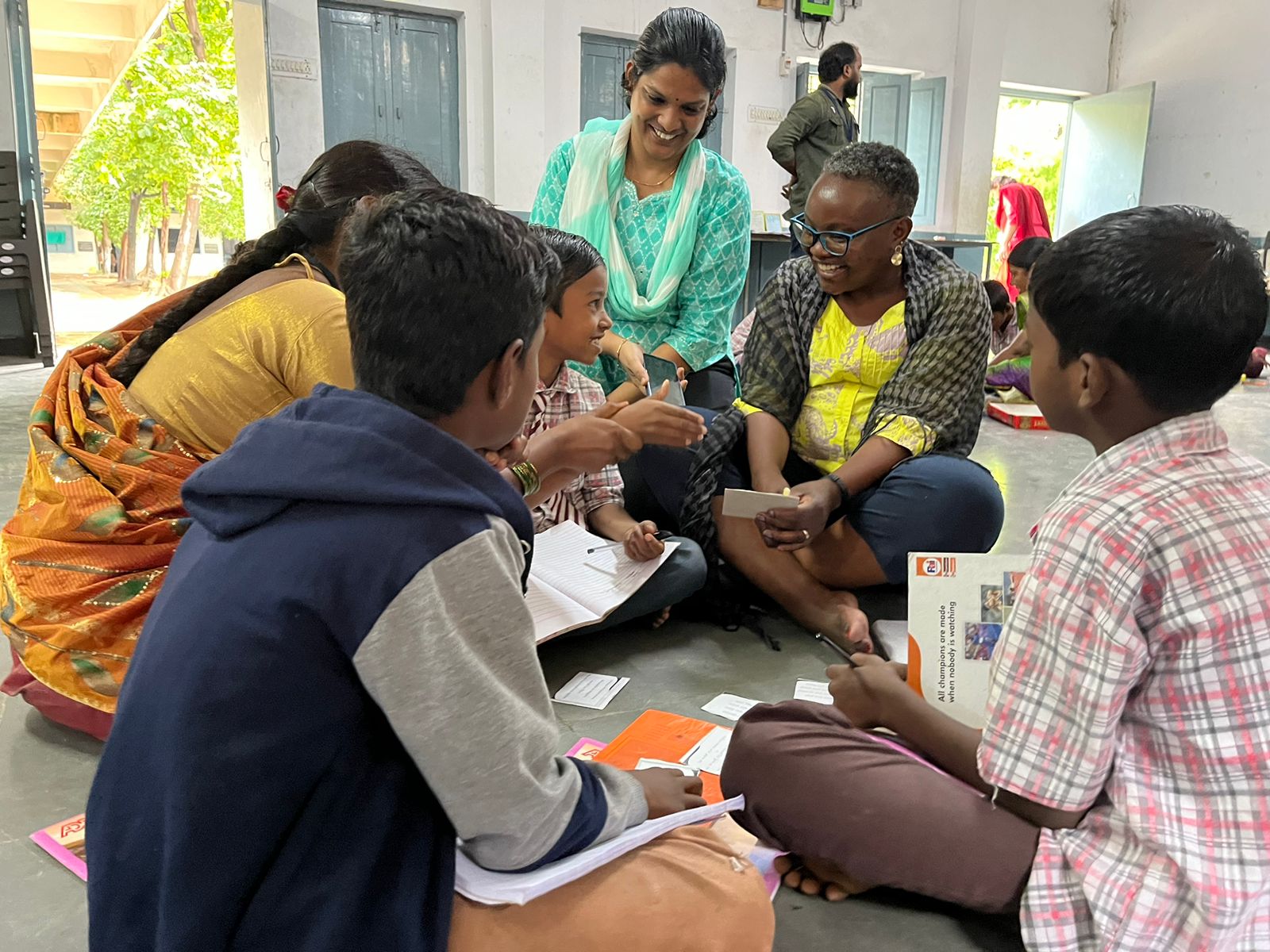In a world divided by borders, the pursuit of knowledge knows no boundaries. It is in this spirit that a part of our team set forth on a learning journey to Hyderabad, India, united by a common passion for education and a shared commitment to empowering future generations. Facilitated by Global School Leaders and warmly hosted by our local partner in India, Alokit, our team of three embarked on an illuminating learning exchange trip.
This is the first of a three-part blog series, each written by a different member of the team, aiming to capture the unique perspectives, reflections and lessons learnt from this trip. We invite you to learn from the innovative practices, heartfelt stories, and profound lessons that have continued to shape and re-shape our understanding of education.
By Faith Muisyo – Programs Director
For a variety of reasons, India had been on my bucket list for a long time. From its technological advancements and engineering contributions to our local infrastructure (thinking of the historical construction of the Kenya-Uganda railway by Indian labourers and engineers) to its world-famous and respected medical industry. The country’s rich cultural heritage, thriving film industry and intricate architecture have always fascinated me. Not to mention ancient practices like Yoga and Ayurveda which derive their philosophical origins from the region. As the world’s largest producer of spices, India’s prowess is evident and appreciated by its population of over 1.4 billion people. India truly stands out as a diverse and captivating destination. It was therefore exhilarating to learn that there was an opportunity for a trip in partnership with Global School Leaders to visit Hyderabad.
Its often said that patience is not the ability to wait, but rather the ability to keep a positive outlook throughout the process. It serves as a wonderful reminder that wonderful things take time and effort to orchestrate. The learning exchange trip had been four years in the making. As a team of three, our destination was Hyderabad in Telangana state, where the Telegu and Urdu languages are widely spoken.
The purpose of our trip was to participate in a learning exchange. Alokit, our local host, had organized a 5-day official learning program for us. We were able to tour two tribal residential schools, a government high school, a low-budget Muslim school (Pioneer High School), and a private school (Tiny Scholars School) where, as a team, we immersed ourselves in the interactions and engaged with the Alokit team, learners at the schools, school administrators, and teachers and partners.
We learnt that Ma’am Naga Seetha, the principal of Tiny Scholars School, has grown the school since she began as the only kindergarten teacher with ten learners at the age of thirty. Twenty-two years later, she has a team of more than forty teachers and over eight hundred learners. She has made valuable contributions to the school system, in instructional coaching and mentoring of teachers and pioneered several excellent teaching approaches.
Of interest was the government high school, Refan-E-Aam High School, which has been providing education to learners for 140 years. This was also a Pratham model school that was executing a 44-day foundational literacy and numeracy program, Teaching at the Right Level (TaRL), which I had known in theory but never seen in practice.
TaRL (Teaching at the Right Level) is an innovative teaching approach that focuses on ensuring students are taught at their appropriate skill level, rather than their grade level.
It was fascinating to witness how this methodology was implemented at the school and the positive impact it had on student learning outcomes. The dedication and passion of the teachers in implementing TaRL were truly inspiring, and they made me realize the importance of personalized education in catching up with schools and how this nurtures young minds.
The visit to Telangana Tribal Rural schools for boys and girls was a special visit to allow us to understand how affirmative action policies with reservation quotas can help bridge the educational gap and provide equal opportunities for students from marginalized and disadvantaged communities especially those from the lower castes that lack access to quality education. These schools are adequately funded and equipped with quality resources and teachers. I was equally impressed by the emphasis on practical learning methods and the integration of technology through programs like MindSpark offered by Education Initiatives fostering a well-rounded education. By tailoring the curriculum to their specific needs and incorporating cultural elements, tribal schools not only improve numeracy and literacy skills but also empower these children to preserve their cultural heritage while contributing to the overall development of the nation.
“I was intrigued that they are supplied weekly with state newspapers like “Hindu Daily,” ensuring that students are well-informed about current affairs.”
The India experience was eye-opening and left a lasting impact on our understanding of instructional learning in diverse settings. It was an incredible opportunity to foster cross-cultural learning and bring back practices that can be shared with Dignitas partner schools.
During this short visit, I was impressed by the Indian people’s generosity and warm hospitality. The experience left me craving more! I will certainly plan another trip to immerse myself in the country’s rich culture and diversity and to explore its historical landmarks and discover places unknown!

